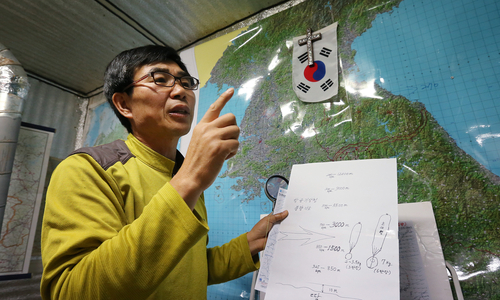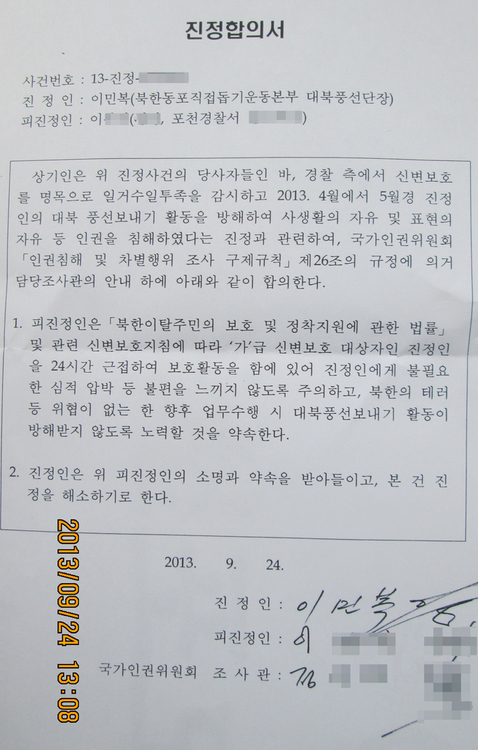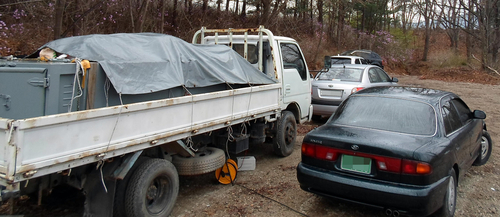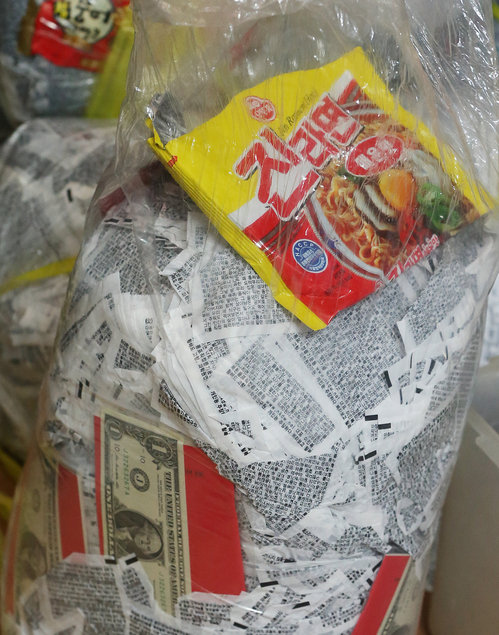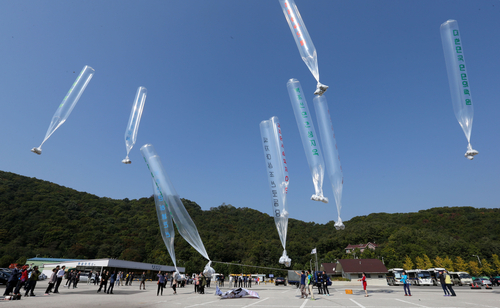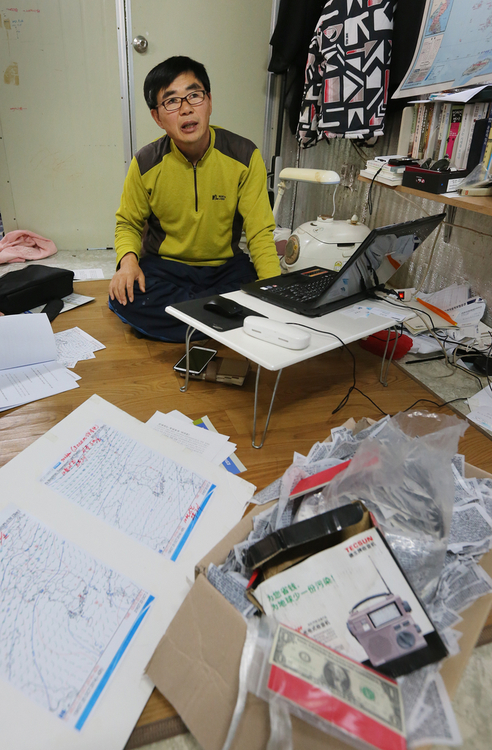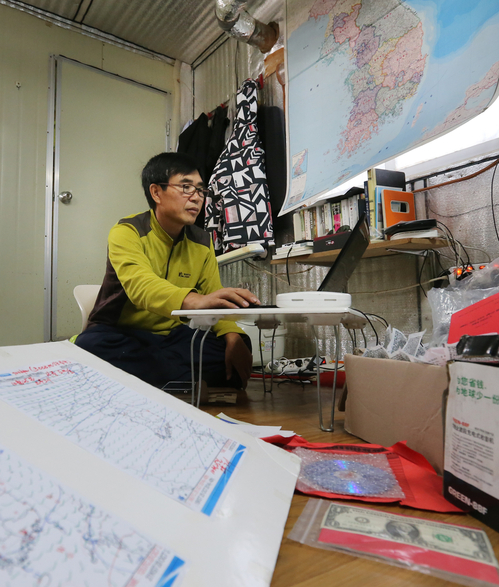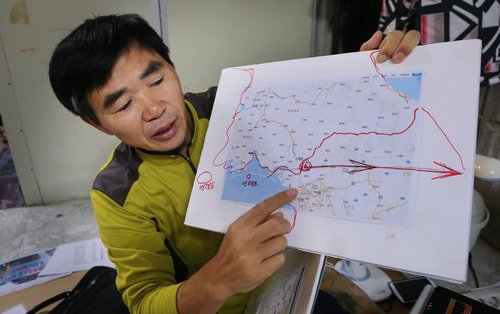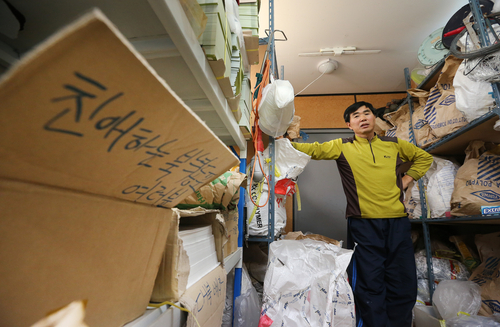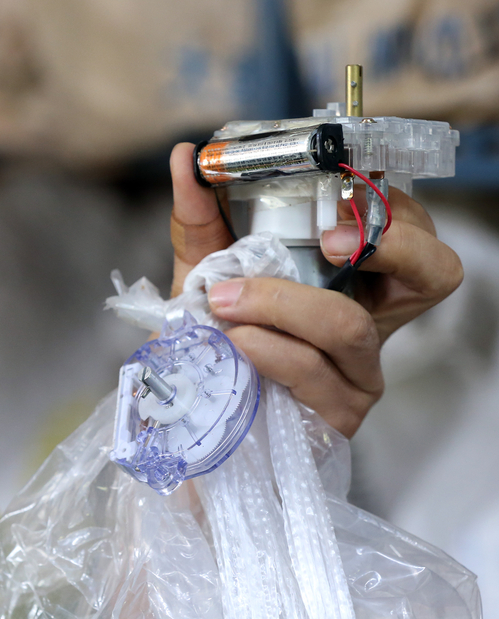[연설문]
기조연설문
쿠테사 총회의장님, 반기문 사무총장님,
그리고 각국 대표 여러분,
쿠테사 외교장관의 제69차 유엔총회 의장직 취임을 축하드리며,
이번 총회에서 의미있는 성과를 거두기를 기대합니다.
아울러 세계 도처에서 발생하는 수많은 현안을 해결하기 위해
진력하고 계시는 유엔과 반기문 사무총장께 감사드립니다.
내년이면 유엔 창설 70주년을 맞게 됩니다.
저는 오늘날 우리가 처한 상황을 보면서
70년 전 유엔 창설자들이 품은 원대한 꿈과 이상을
다시 한 번 생각하게 됩니다.
유엔 창설 당시 유엔헌장 맨 첫머리에 써진
“우리, 인류(We the Peoples)”라는 표현에서 보듯이,
그들은 사람이 중심이 되는 새로운 세계를 만들고자 했습니다.
그리고 냉전과 탈냉전 시기를 거치는 동안
유엔은 수많은 도전을 극복하며 국제평화와 개발, 인권증진이라는
핵심 목표를 실현하기 위해 노력해 왔습니다.
그러나 이러한 유엔의 노력에도 불구하고
오늘날 세계 도처에서는 크고 작은 분쟁과 갈등이 계속되고 있습니다.
시리아, 리비아, 남수단 등에서 내전이 계속되면서
부녀자와 어린이들을 포함해 수많은 무고한 인명이 희생되고 있습니다.
이라크와 그 주변지역에서는 외국인 테러리스트들이 준동하면서
중동지역은 물론 국제평화에 새로운 위협이 되고 있습니다.
가자 지역과 우크라이나의 불안정한 휴전 체제는
보다 근본적이고 영속적인 해결을 요구하고 있습니다.
또한, 최근 아프리카에서 창궐하고 있는 에볼라 바이러스와
빈곤, 자연재해 등의 다중적 위기(multiple crises)들은
인류의 삶이 도처에서 위협받는 현실을 보여주고 있습니다.
이처럼 인류의 평화와 발전을 해치는 도전에 맞서기 위해서는
유엔 창설의 기본정신인 ‘인간우선’과 ‘국제협력’의 정신으로
돌아가야 합니다.
유엔을 중심으로 보다 신속하고 효율적인 대응 체제를 갖춰서
평화와 정의, 인류의 공동발전을 바라는
국제사회의 열망에 부응해 나가야 할 것입니다.
대표단 여러분,
대한민국은 1948년 유엔의 축복 속에 출범했고,
1950년 발발한 한국전쟁에서도
유엔의 도움으로 자유민주주의를 지킬 수 있었습니다.
그렇게 유엔의 지원으로 존립을 이어갔던 나라가
이제 선진화된 시장경제와 민주주의를 동시에 달성한
국가가 되었습니다.
그 과정에서 유엔이 추구하는 가치인 평화와 발전, 그리고 인권은
바로 대한민국의 비전이 되었습니다.
대한민국은 지난 역사를 통해
세계 도처에서 발생하고 있는 내전과 침략, 빈곤, 인도적 재앙들이
얼마나 고통스러운 것인지 잘 알고 있습니다.
이것이 오늘날 대한민국이 유엔의 3대 이사회 이사국으로서
국제평화와 인권증진, 지속가능개발의 임무를
적극적으로 수행하고 있는 이유이기도 합니다.
오늘 날 중동과 유라시아 그리고 동북아에서 전개되고 있는 상황은
유엔의 창설자들이 구상했던 평화롭고 정의로운 세계의 꿈과는
거리가 멉니다.
현재의 불안정과 혼란 상황을 극복하는 첫 걸음은
주권과 영토보존의 존중, 유엔 헌장에 위반하는 무력행사와 위협의 자제, 인권과 인도적 가치에 대한 존중이라는
국제사회의 기본 질서와 규범을 지키는 데서 시작되어야 합니다.
국제평화와 안전을 근본적으로 위협하는 핵무기 등
대량살상무기(WMD)의 개발과 확산을 방지하여야 합니다.
이러한 차원에서 유엔과 화학무기금지기구(OPCW)의 공동노력으로
시리아의 화학무기가 폐기되고,
이란 핵문제 해결에 진전이 있는 것을 환영합니다.
마찬가지로 저는 한반도와 동북아 평화에 가장 큰 위협인
북한 핵문제가 시급히 해결되어야 한다는 점을 강조하고자 합니다.
북한은 21세기 들어 핵실험을 감행한 유일한 국가입니다.
북한의 핵 프로그램은 국제평화에 심각한 위협일 뿐만 아니라,
핵비확산 체제의 근간인 NPT 체제를 전면 부정하는 것입니다.
북한은 핵을 포기하는 결단을 내려야 합니다.
스스로 핵을 포기하고 개혁과 개방을 선택한 여러 나라들처럼
경제발전과 주민의 삶을 개선하는 변화의 길로 나와야 합니다.
그럴 경우 우리는 국제사회와 함께
북한의 경제발전을 적극적으로 지원할 것입니다.
한반도 내의 엄중한 도전과 함께
현재 동북아시아도 어려운 전환기적 과정을 거치고 있습니다.
역사와 영토, 해양안보를 둘러싸고 역내 긴장이 고조되고 있지만,
다른 지역과 달리 동북아에는 다자협의를 통해
이런 문제를 풀어갈 장치가 존재하지 않습니다.
이런 문제의식 하에, 저는 역내 국가간 신뢰와 협력의 질서를
구축하기 위해 ‘동북아평화협력구상’을 추진하고 있습니다.
기후변화 대응과 재난구호, 원자력안전 등 초국가범죄 대처와 같은
실용적인 분야에서부터 역내 국가들이 협력의 습관을 축적해 나간다면
유럽에서와 같이 다자간 협력 프로세스로
강화되어 갈 수 있을 것이라 생각합니다.
이런 맥락에서 역내 국가간 공동 관심사인 원자력안전 문제를
논의하기 위해 “동북아 원자력안전 협의체” 구성도 제안하였습니다.
또한, 동북아를 넘어 유라시아로 교통망, 에너지망을 연계하여
경제적 상호의존을 통해 정치․안보적 신뢰를 구축하는 노력도
병행하고 있습니다.
대표단 여러분,
올해는 20세기 후반 국제사회 최대의 인도적 참사로 불리는
르완다 대학살이 발생한 지 20주년이 되는 해입니다.
1990년대 국제사회는 舊유고와 르완다에서의 대학살을 겪으면서
“결코 다시는(Never Again)”을 외쳤지만,
오늘날 시리아와 이라크에서 새로운 형태의 인도적 참사를
목격하고 있습니다.
대한민국은 이러한 인도적 참사 예방을 위한
유엔의 노력에 적극 동참하고 있습니다.
특히 반기문 사무총장이 주도하고 있는 ‘Rights up Front 이니셔티브’, ‘Open Gate Policy`와 같은 유엔 인권보호 정책을 적극 지지합니다.
이 순간에도 남수단과 레바논 등에서 활동 중인
대한민국 유엔 평화유지군은
평화구축과 재건, 민간인 보호와 인권 보장을 위해 노력하고 있습니다.
또한, 대한민국은 분쟁지역에서 고난을 겪고 있는 여성과 아동들의
인도주의적 피해를 방지하는 데도 큰 관심을 기울이고 있습니다.
이런 취지에서 작년 2월 안보리 의장국으로서
‘분쟁하 민간인 보호에 대한 고위급 공개토의’를 개최하여
국제사회의 관심을 환기시켰고,
‘분쟁하 성폭력 방지 이니셔티브(PSVI)’의 대표국가(Champion)로도
참여하고 있습니다.
전시 여성에 대한 성폭력은,
어느 시대, 어떤 지역을 막론하고,
분명히 인권과 인도주의에 반하는 행위입니다.
또한, 오늘날 국제사회가 큰 관심과 우려를 갖고 있는
인권문제 중의 하나가 북한 인권입니다.
지난 3월 유엔 인권이사회는
북한인권조사위원회(COI) 보고서상의 권고사항을 채택했습니다.
북한과 국제사회는 COI 권고사항 이행을 위해
필요한 조치를 취해야 할 것입니다.
이와 관련, 조만간 유엔이 한국에 설치할 북한 인권사무소가
이러한 노력을 지원할 수 있을 것으로 기대합니다.
또한, 국제사회는 탈북민의 인권문제에도 관심을 기울여야 합니다.
탈북민들이 자유의사에 따라 목적지를 선택할 수 있도록
유엔 해당기구와 관련 국가들이 필요한 지원을 제공해야 합니다.
대표단 여러분,
절대빈곤과 기후변화 등 오늘날 인류가 직면한 과제들은
그 복잡성과 상호의존성을 감안할 때,
국제사회의 공동대응을 통해서만 해결될 수 있을 것입니다.
절대빈곤 타파와 사회경제적 기회 증대를 목표로 출범한
유엔새천년개발목표(MDGs)는
목표 연도인 내년 말까지 500일도 남지 않았습니다.
우리나라는 우리의 독특한 역사적 경험을 활용하여
2015년 이후 개발목표 설정 과정에서
선진국과 개도국 간 교량 역할을 해나가고자 합니다.
이런 맥락에서 지난 4월 멕시코에서 열린
「부산 글로벌 파트너십 장관급회의」에서는
부산 글로벌파트너십을 국제개발 협력체제로 발전시키기로 했습니다.
우리나라는 대외원조의 질적인 발전을 도모해 나갈 것입니다.
과거 근면, 자조, 협동의 정신으로 우리의 농촌 빈곤퇴치에 기여한
‘새마을운동 모델’이 지구촌에 확산되도록
경험을 공유하는 노력도 지속할 것입니다.
또한, 경제발전 과정에서 교육에 크게 힘입은 우리나라는
반기문 사무총장의 ‘글로벌 교육우선구상(GEFI)’을 적극 지지하면서
이 구상의 지원국(Champion)으로 활동하고 있습니다.
우리나라는 2015년 이후(Post-2015)개발목표의 핵심과제인 교육분야에서
우리의 경험을 공유하고 유엔의 구상을 실질적으로 지원할 것입니다.
이를 위해 2015년 5월에 세계교육포럼(WEF)을 주최하여,
향후 15년간 새로운 교육목표에 합의할 수 있도록 노력할 것입니다.
기후변화 문제는 전쟁과 평화의 문제 못지않게
인간의 삶을 위협하는 최대의 도전으로 부상하였습니다.
어제 기후정상회의에서 각국 정상들은
2020년 이후(Post-2020) 新기후체제에 대한 합의도출을 위해
공동의 의지를 모았습니다.
앞으로 2015년 파리 기후변화총회까지는
반드시 新기후체제에 대한 합의를 도출해야만 합니다.
우리는 녹색기후기금(GCF)과 글로벌녹색성장기구(GGGI) 유치국으로서
개도국의 기후변화 대응역량 강화를 위한
국제사회의 노력에 기여하고자 합니다.
무엇보다 녹색기후기금의 조속한 정착과
글로벌녹색성장기구의 개도국 지원확대에 협력할 예정입니다.
또한, 한국은 기후변화 대응을 부담이 아닌 새로운 기회로 인식하고,
기술혁신을 통해 새로운 가치와 시장, 일자리를 창출하고자
에너지 신산업을 육성하고 있습니다.
이러한 노력의 과실을 개도국들과 함께 나눌 것입니다.
의장님, 그리고 대표단 여러분,
69년전 한민족은 광복을 맞이하였지만 남북한으로 갈라져
하나의 주권국가로 유엔의 회원국이 될 수 없었습니다.
1991년 남한과 북한이 유엔에 동시 가입하였습니다.
하지만 같은 언어, 문화 그리고 역사를 공유하고 있는 남과 북이
유엔에서 2개의 자리를 차지하고 있는 것은 분명 비정상적인 일입니다.
올해는 베를린 장벽이 무너진 지 25년이 되는 해입니다.
하지만 아직도 한반도는 분단의 장벽에 가로 막혀 있습니다.
수많은 이산가족들이 사랑하는 가족을 만나지 못한 채,
그리움과 고통의 시간을 보내고 있습니다.
세계에서 유일하게 남아있는 이런 분단의 장벽을 무너뜨리는데
세계가 함께 나서 주시기 바랍니다.
저는 얼마 전 북한에게
남북한 사이에 환경과 민생, 그리고 문화의 통로(Corridor)를
만들자고 제안하였습니다.
남북한 주민들이 하나의 생태계 속에서 자연과 어우러지고,
헤어진 가족들이 서로 만나며 고통을 덜어가고,
문화를 함께 공유할 때,
분단의 아픔을 치유하고 함께 발전할 수 있는
생활공동체를 형성할 수 있다고 믿기 때문입니다.
지금 한반도는 폭 4km, 길이 250km의 DMZ에 의해 단절되어 있습니다.
전쟁의 재발을 막기 위해 군사분계선을 따라 만들어진 DMZ는
지난 60여년간 사람의 왕래도 막았습니다.
하지만 그 사이 자연은 이곳에 생태계의 보고를 만들어 주었습니다.
DMZ의 생태계는 남과 북이 하나이고,
남과 북이 협력해야 한다는 것을 웅변적으로 보여주고 있습니다.
저는 단절의 상징인 DMZ에 ‘세계생태평화공원’을 건설하여
남북으로 갈라져 있는 한반도의 자연과 사람을
하나로 연결하는 출발점으로 삼고자 합니다.
DMZ의 작은 공간부터 철조망을 걷어 내고,
남북한 주민들이 자연과 어우러져 소통할 수 있다면,
DMZ 세계생태평화공원은 생명과 평화의 통로로
자리매김할 수 있을 것입니다.
이 과정에 유엔이 앞장서 주길 부탁드립니다.
유엔 주도 하에 남북한, 미국, 중국 등 전쟁 당사자들이 참여하여
국제적인 규범과 가치를 존중하며 공원을 만든다면,
그것은 한반도 긴장완화와 평화통일의 시금석이 될 것입니다.
통일된 한반도는 핵무기 없는 세계의 출발점이자,
인권문제에 대한 근본적인 해결책이며,
안정 속에 협력하는 동북아를 구현하는 시발점이 될 것입니다.
독일통일이 유럽통합을 이루어 새로운 유럽의 주춧돌이 되었다면,
통일된 한반도는 새로운 동북아를 만들어 가는 초석이 될 것입니다.
한반도의 평화통일은
그 자체로 유엔의 설립목표와 가치를 구현하는데
기여할 것이라고 저는 확신합니다.
쿠테사 총회의장님, 반기문 사무총장님,
그리고 각국 대표 여러분,
유엔의 창설자들은 전란의 와중에서도 미래를 내다보며
전후의 평화로운 세계를 구상했습니다.
대한민국은 한반도의 지속가능한 평화와 통일,
그리고 동북아의 평화와 발전을 넘어
지구촌 행복시대를 구현하는 것을 외교 비전으로 삼고 있습니다.
유엔이 인류 공동의 가치를 공고히 지켜나가고,
글로벌 거버넌스의 중심 기구로 자리매김해 나가는 숭고한 여정에
대한민국은 응분의 역할을 다해나갈 것입니다.
감사합니다.
[Statement/연설문]
(비공식) 영문 번역본
Full Text/전문: http://www.un.org/en/ga/69/meetings/gadebate/pdf/KR_en.pdf
<Unofficial Translation>
Check against Delivery
Keynote Address
by H.E. PARK Geun-hye
President of the Republic of Korea
at the 69th Session of
the General Assembly of the United Nations
September 24, 2014, New York
Mr. President, Mr. Secretary-General, Fellow Delegates,
Let me start by congratulating you, Mr. Kutesa, on your election as President of the 69th Session of the UN General Assembly. I am confident that this session will make meaningful progress under your able leadership.
I would also like to express my appreciation to Secretary-General Ban Ki-moon for his tireless efforts to tackle the numerous challenges breaking out across the globe.
(United Nations and Global Governance)
Next year marks the 70th anniversary of the founding of the United Nations.
I am prompted by the state of our world today, to reflect once again upon the noble dreams and ideals that inspired the founders of the United Nations seventy years ago.
The founders aspired to build a new world that places people at the center, as the opening words of the UN Charter, `We the Peoples,` remind us.
Throughout the ensuing decades of the Cold War and post-Cold War era, the UN has been tackling countless crises, striving as it did so, to fulfill its purpose of maintaining international peace, promoting development, and upholding human rights.
Yet, our world continues to be beset with widespread disputes and conflicts—both large and small—despite the efforts of the UN.
Civil conflicts raging on in Syria, Libya and South Sudan are leading to the deaths of untold numbers of innocent women and children.
In Iraq and surrounding areas, the activities of foreign terrorist fighters are posing new threats to peace internationally, not to mention in the Middle East.
The fragile ceasefire in Gaza and Ukraine call for a more fundamental and lasting solution.
The recent Ebola outbreak in Africa, widespread poverty and natural disasters, together underscore how humanity is under threat from multiple challenges.
The need to push back against these harmful challenges to peace and development beckons us to return to the UN`s founding spirit of putting people first and promoting cooperation among the family of nations.
And to meet the aspirations of the international community for justice and common prosperity, the UN needs to continue playing a central role for arranging more rapid and efficient responses.
(Three key objectives of the UN)
Ladies and Gentlemen,
The Republic of Korea was founded in 1948 with the blessing of the UN.
It was able to safeguard freedom and democracy during the Korean War that broke out two years later, again with the help of the UN.
Once a country that barely managed to survive with the UN`s assistance, the Republic of Korea is today a nation that has achieved both an advanced market economy and democracy.
And in the course of that journey, the Republic of Korea came to espouse the values upheld by the UN—peace, development and human rights—as its own vision.
Given its history, the Republic of Korea is no stranger to the agonies of civil war, aggression, poverty and humanitarian disasters that are unfolding around the world.
This is why Korea is actively working to serve international peace, promote human rights and sustainable development, as a member of the three major councils of the UN—the Security Council, Human Rights Council, and Economic and Social Council.
(International Peace)
Developments unfolding in the Middle East, Eurasia, and Northeast Asia are a far cry from the peaceful and just world that was envisioned by the UN`s founders.
Overcoming the instability and chaos we see today must start with our adherence to the fundamental order and norms of the international community. That is, respect for sovereignty and territorial integrity, refraining from the threat or use of force in violation of the UN Charter, and respect for human rights and humanitarian values.
We need to prevent the development and proliferation of weapons of mass destruction like nuclear weapons, which pose a fundamental threat to international peace and security.
In this regard, we welcome the elimination of Syria`s chemical weapons through the joint efforts of the UN and the Organization for the Prohibition of Chemical Weapons (OPCW), as well as the progress being made in addressing the Iranian nuclear issue.
By the same token, I would underline the urgency of resolving the North Korean nuclear issue, which presents the single-greatest threat to peace on the Korean Peninsula and in Northeast Asia.
The DPRK is the only country to have conducted a nuclear test in the 21st century.
Its nuclear program is not only a serious threat to international peace, but alsoamounts to a total rejection of the Non-Proliferation Treaty, the backbone of the global nuclear non-proliferation regime.
The DPRK must make the decision to give up its nuclear weapons.
The DPRK should follow in the footsteps of other countries that have abandoned their nuclear weapons in favor of reform and opening, and choose a different path that supports its economic development and improves the lives of its people.
Should it choose to do so, the Republic of Korea, together with the international community, will provide our strong support for developing the DPRK economy.
In addition to this serious challenge on the Korean Peninsula, Northeast Asia is undergoing a difficult transition.
There are growing tensions in the region surrounding issues of history, territory and maritime security. Yet, unlike other regions, Northeast Asia lacks a mechanism for dealing with these problems through multilateral consultations.
It is against this backdrop that I am seeking to advance a Northeast Peace and Cooperation Initiative that is aimed at building an order of trust and cooperation in the region.
In my view, building up habits of cooperation in practical areas, such as climate action, disaster relief, nuclear safety, and tackling transnational crime, can materialize into a multilateral process of cooperation along the lines of what we see in Europe.
In this context, I have also proposed creating a Northeast Asia nuclear safety consultative body to discuss nuclear safety issues—a topic of shared interest for the countries in the region.
At the same time, we are reaching beyond Northeast Asia and seeking to build transportation and energy networks across an economically inter-dependent Eurasia, which would help strengthen political and security trust across the continent.
(Human Rights)
Ladies and Gentlemen,
This year marks 20 years since the Rwanda genocide—the world`s greatest humanitarian tragedy of the late 20th century.
The international community had pledged `never again` in the aftermath of the genocides in the former Yugoslavia and Rwanda in the 1990s. Yet, we are witnessing today a different type of humanitarian disaster unfolding in Syria and Iraq.
The Republic of Korea is actively participating in the efforts of the UN to prevent such humanitarian tragedies.
The Republic of Korea strongly supports UN policies to protect human rights, such as, in particular, the Rights up Front initiative and Open Gate Policy that the Secretary-General is leading.
Even as we speak, Korean troops are taking part in UN peacekeeping missions in South Sudan and Lebanon, helping with peace-building, reconstruction, and the protection of civilians and human rights.
The Republic of Korea also attaches great importance to preventing the humanitarian suffering of women and children, in particular, who are most vulnerable in conflict situations.
In this context, during its presidency of the UN Security Council in February 2013, Korea chaired an open session on civilian protection in conflict situations and helped raise global awareness. Korea is also participating in the Preventing Sexual Violence Initiative (PSVI) as a champion state. Sexual violence against women during armed conflicts is a clear violation of human rights and humanitarian norms, regardless of how far back or where it occurred.
The human rights situation in the DPRK is also the subject of profound interest and concern for the international community.
Last March, the UN Human Rights Council adopted the recommendations in the report of the Commission of Inquiry (COl) on human rights in the DPRK. The DPRK and the international community should take the necessary measures to implement these recommendations.
In this regard, the UN office that will soon be set up in the Republic of Korea to investigate human rights abuses in the DPRK is expected to reinforce such efforts.
The international community should also pay greater attention to the human rights situation of North Korean defectors. Relevant UN agencies and countries should provide the necessary support so that defectors can freely choose their resettlement destinations.
(Development, Education, and Environment)
Ladies and Gentlemen,
The challenges facing humanity today, such as absolute poverty and climate change, can only be addressed through concerted international response, given their complexity and intertwined character.
Less than 500 days remain until the target date of the Millennium Development Goals (MDGs), which was launched with the goal of eradicating absolute poverty and increasing social and economic opportunities.
The Republic of Korea is ready to play a bridging role between developed and developing countries as the post-2015 development goals are being set, by harnessing our unique historical experience.
In this regard, the decision was made to develop the Busan Global Partnership into an international development cooperative mechanism at the Ministerial Meeting that was held last April in Mexico.
The Republic of Korea will seek to enhance the quality of its overseas assistance. We will continue to share our development experience, by globally promoting the Saemaul movement model, which conduced to eradicating rural poverty in Korea through the spirit of diligence, self-reliance and cooperation.
Having seen the power of education in propelling its own development, the Republic of Korea strongly supports—as a Champion—the Secretary-General`s Global Education First Initiative (GEFI).
Korea will share its lessons-learned and provide substantive support to the UN`s initiatives on education, which is one of the main themes of the post-2015 development goals.
To this end, Korea will host the World Education Forum (WEF) in 2015 and make efforts to reach an agreement on the new education objectives for the next fifteen years.
Climate change is no less an existential threat to humanity than the question ofwar and peace.
At yesterday`s Climate Summit, leaders rallied their collective resolve to reach a consensus on the post-2020 new climate regime.
Going forward, an agreement must be reached on a new climate regime by the2015 Conference of the Parties to the UNFCCC in Paris.
As the host country of the Green Climate Fund (GCF) and the Green GrowthGlobal Institute (GGGI), Korea is committed to supporting international efforts to strengthen developing countries` mitigation and adaptation capacities.
Above all, we will continue to work for the full and early operationalization of the GCF and for the expansion of GGGI`s assistance to developing countries.
Korea views the climate challenge, not as a burden, but an opportunity to unleash new value, markets and jobs through technology innovation. We arenurturing new energy industries.
And we hope to share the fruits of our efforts with other developing countries.
(Inter-Korean Relations and Reunification)
Mr. President,
Fellow delegates,
The Korean people gained independence 69 years ago, but the subsequent division of the Korean Peninsula precluded its membership in the UN as a single sovereign state.
The two Koreas were separately admitted as member states to the UN in 1991. Having two separate seats despite a single language, culture and history isclearly not normal.
This year marks the 25th anniversary of the fall of the Berlin Wall. But theKorean Peninsula remains stifled by a wall of division.
Countless separated families have been spending decades in agony, longing tosee their loved ones.
I call on the international community to stand with us in tearing down the world`s last remaining wall of division.
Not long ago, I proposed to the DPRK that we build corridors that can connectour environment, our livelihoods, and our culture.
In my view, a genuine community that can heal the wounds of division and move the both sides forward together, will only come about when people from the South and the North are able to live in natural harmony within a single ecosystem, when separated families are able to come together and ease their agony, and when culture is shared.
Today, the Korean Peninsula is divided by a 4km wide and 250km longdemilitarized zone (DMZ). This DMZ, built around the military demarcation line to prevent renewed conflict, in reality ended up preventing the back-and-forth of people for some sixty years.
But from the stretches of the DMZ would emerge, in those decades, a treasure trove of nature`s wildlife.
The DMZ`s eco-system is a testament to the fact that the South and North are part of a single whole, one which both sides should work together to restore. And so I hope to build inside the very symbol of our division a World Eco-Peace Park that would start reconnecting the Peninsula`s divided nature and divided people.
If we sweep away barbed-wire fences from small tracts inside the DMZ and thereby allow people from both sides to live in natural harmony, the World Eco-Peace Park will emerge as a corridor of life and peace.
I call on the UN to spearhead these efforts. Building a park that embodies respect for international norms and values, and doing so under UN auspices with all the parties to the war on board—the two Koreas, the US and China—would serve the cause of easing tensions and peaceful reunification of the two Koreas.
A unified Korea will be the starting point for a world without nuclear weapons, offer a fundamental solution to the North Korean human rights issue, and help unlock a stable and cooperative Northeast Asia.
Just as the unification of Germany laid the grounds for a new Europe by integrating Europe, a unified Korea will set in motion a new Northeast Asia.
I am confident that a peacefully reunified Korean Peninsula will contribute to realizing the founding purposes and values espoused by the UN.
(Conclusion)
Mr. President,
Mr. Secretary-General,
Ladies and Gentlemen,
The founders of the UN were not deterred by the heat of war from looking to the future and planning for a peaceful post-war world.
The Republic of Korea is committed to a vision of diplomacy that seeks lasting peace and unification in the Peninsula, peace and development in Northeast Asia, and contributes to building a happier world.
The Republic of Korea will do its part in the noble journey to ensure that the UN continues to safeguard our common values and cements its place at the center of global governance.
Thank you.
[Statement/연설문]
Summary/요약
PARK GEUN-HYE, President of the Republic of Korea, highlighted the need to return to the United Nations its founding spirit of putting people first and promoting cooperation among nations. The United Nations should play a central role in arranging more rapid and efficient responses. In her call for prevention of the development and proliferation of weapons of mass destruction, she underlined the urgency of resolving the North Korean nuclear issue, which she called the “single-greatest threat to peace on the Korean peninsula and in North-East Asia”.
About the human rights situation in the Democratic People’s Republic of Korea, she said that that country and the international community should take the necessary measures to implement the recommendations adopted by the United Nations Human Rights Council last March. To reinforce those efforts, the United Nations office would soon be set up in the Republic of Korea to investigate human rights abuses in the Democratic People’s Republic of Korea.
As the post-2015 development goals were being set, the Republic of Korea, she went on, was ready to play a bridging role between developed and developing countries. In particular, she expressed her support for the United Nations education initiatives, including the Secretary-General’s Global Education First Initiative (GEFI). She also promised that, as the host of the 2015 World Education Forum, her country would make efforts to reach an agreement on the new education objectives for the next 15 years.
She said climate challenge was not a burden, but an opportunity to unleash new value, markets and jobs through technology innovations. As the host country of the Green Climate Fund (GCF) and the Green Growth Global Institute (GGGI), the Republic of Korea supported international efforts to strengthen developing countries’ mitigation and adaptation capacities.
With regard to the division of the Korean peninsula, she urged the international community to stand with them in tearing down what she called “the world’s last remaining wall of division”. A unified Korea would be the starting point for a world without nuclear weapons; it would offer a fundamental solution to the North Korean human rights issue and help unblock a stable and cooperative North-East Asia.
[청와대 - 뉴스]
대통령, 유엔총회 기조연설
박근혜 대통령은 취임 후 처음으로 글로벌 거버넌스 체제의 핵심인 유엔총회에 참석, 24일 오전 유엔총회장에서 기조연설을 했습니다.
※ 제69차 유엔총회 개요(총회의장 : Kutesa 우간다 외교장관)
- 총회주제 : 변화를 가져오는 2015년 이후 개발목표 설정과 이행(Delivering on and Implementing a Transformative Post-2015 Development Agenda)
- 기조연설 기간 : 2014.9.24(수) ~10.1(수)
- 기조연설자 : 국가원수·정부수반급 141명 포함, 193개 회원국 대표
박 대통령은 중동·아프리카 등에서의 분쟁 지속, 이라크 내 외국인 테러리스트 문제 등 새로운 위협 부상, 우크라이나 사태, 에볼라 바이러스 창궐 등 동시다발적인 도전에 효과적으로 대응하기 위해서는 유엔이 창설 당시의 「인간 우선」과 「국제협력」의 초심으로 돌아가 중심적 역할을 수행하는 것이 필요하다고 강조했습니다.
박 대통령은 1948년 정부출범, 한국전쟁 및 이후 경제개발 과정에서의 우리나라와 유엔 간 긴밀한 관계를 회고하면서, 한때 동아시아의 최빈국이 이제는 선진화된 시장경제와 민주화를 동시에 달성한 국가이자, 유엔의 3대 이사회*의 이사국으로서 국제평화, 인권증진 및 지속가능개발의 유엔 3대 임무를 적극적으로 수행하고 있다고 소개하였습니다.
* 유엔 3대 이사회 : 안전보장이사회, 인권이사회, 경제사회이사회
[국제평화 분야 관련]
△북한 핵 문제의 해결 필요성을 강조하고, 북한의 핵 포기 및 경제 발전을 위한 전략적 선택을 촉구했습니다. △동북아의 역사, 영토 및 해양안보 관련 갈등을 해결하고 역내 국가 간 신뢰와 협력의 질서를 구축하기 위한 동북아평화협력 구상 및 동북아 원자력안전협의체 추진과 △유라시아 차원의 협력 추진을 설명했습니다.
[인권 분야 관련]
△르완다 대학살 20주년을 맞아 유엔의 인권 강화 정책에 대한 적극적인 지지 표명했습니다. △전시 여성에 대한 성폭력은 어느 시대, 어떤 지역을 막론하고 인권과 인도주의에 반하는 행위임을 강조하고 북한인권 문제 관련, △북한과 국제사회가 북한 인권조사위원회(COI)의 권고사항 이행을 위해 필요한 조치를 취할 것을 촉구했습니다. △탈북민의 인권보호 및 자유의사에 따라 목적지를 선택할 수 있도록 유엔과 관련국가들의 협조를 요청했습니다.
[개발·교육·환경 분야 관련]
△2015년 이후 개발목표 및 2020년 신기후체제 수립 과정에서의 우리나라의 교량역할 수행의지를 천명하고 △새마을운동 모델의 지구촌 확산을 위한 우리경험을 공유했습니다. △글로벌 교육우선구상(Global Education First Initiative) 적극 지원 및 우리의 2015년 세계교육포럼(WEF) 주최를 소개했습니다. △신기후체제에 대한 합의 도출 필요성을 강조하고, 녹색기후기금(GCF) 및 글로벌녹색성장기구(GGGI) 유치국으로서 개도국의 기후변화 대응역량 강화방안에 대한 국제사회의 노력에 기여 의지 등을 강조했습니다.
박 대통령은 분단 70주년을 앞두고 있는 우리나라의 평화통일 정책을 상세히 설명하면서, 한반도 통일은 유엔의 설립목표와 숭고한 가치에도 기여한다는 비전을 제시했습니다.
통일된 한반도는 △핵무기 없는 세계의 출발점이자, △인권문제에 대한 근본적인 해결책으로, △안정되고 협력적인 새로운 동북아를 구현하는 시발점이 될 것이라는 점을 강조했습니다.
지난 8.15 경축사에서 남북한간 환경과 민생, 그리고 문화의 통로를 만들자고 하였던 제안과 관련, DMZ에 ‘세계생태평화공원’을 건설하여 남북으로 갈라져 있는 한반도의 자연과 사람을 하나로 연결하는 출발점을 삼고자함을 천명하고, 유엔 등 국제사회의 기여를 요청했습니다.
박 대통령은 금번 유엔총회 기조연설을 통해 주요 국제문제에 대한 우리의 기여 의지를 표명했으며, 나아가 한반도 통일과 동북아 평화협력을 이루어 내기 위한 우리정부의 노력을 전 세계에 설명함으로써 국제사회의 이해와 공감대를 확산하는데 크게 기여했습니다.
Source:
http://www.un.org/en/ga/69/meetings/gadebate/24sep/republicofkorea.shtml
http://www.un.org/press/en/2014/ga11564.doc.htm
http://www1.president.go.kr/news/newsList.php?srh%5Bview_mode%5D=detail&srh%5Bseq%5D=7459
http://www1.president.go.kr/news/newsList.php?srh%5Bview_mode%5D=detail&srh%5Bseq%5D=7456
http://english1.president.go.kr/activity/briefing.php?srh%5Bboard_no%5D=21&srh%5Bpage%5D=9&srh%5Bview_mode%5D=detail&srh%5Bseq%5D=7480&srh%5Bdetail_no%5D=216#sthash.2NFgEjha.dpuf
